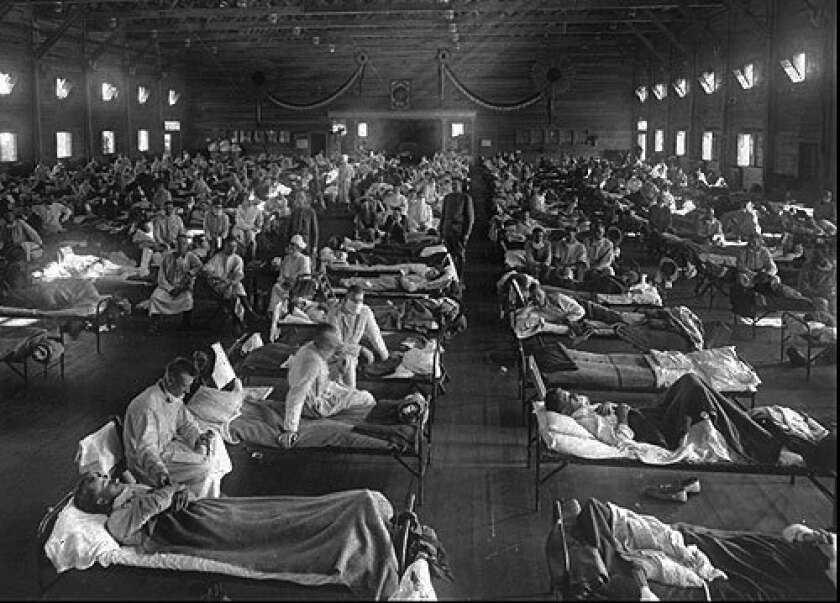1918: Spanish Flu
The avian-borne flu that resulted in 50 million deaths worldwide, the Spanish flu is theorized to have originated in China and been spread by Chinese laborers being transported by rail across Canada on their way to Europe. In North America, the flu first appeared in Kansas in early 1918 and was visible in Europe by spring. Wire service reports of a flu outbreak in Madrid in the spring of 1918 led to the pandemic being called the “Spanish flu.”
By October, hundreds of thousands of Americans died and body storage scarcity hit crisis level. The flu threat disappeared in the summer of 1919.
386
1.51K reads
CURATED FROM
IDEAS CURATED BY
The idea is part of this collection:
Learn more about health with this collection
How to use storytelling to influence and persuade
How to create a compelling narrative
How to structure your story for maximum impact
Related collections
Similar ideas to 1918: Spanish Flu
The origins of the "Spanish" flu
The so-called Spanish flu did not originate in Spain. The geographic origin of the flu is debated to this day, though hypotheses have suggested East Asia, Europe, and even Kansas.
The influenza pandemic from 1918 got this name most likely because of the WWI context: The major countries inv...
1918 Pandemic (H1N1 virus)
The 1918 influenza pandemic was the most severe pandemic in recent history. It was caused by an H1N1 virus with genes of avian origin.
We don't really know he virus originated, it spread worldwide during. It is estimated that about 500 million people or one-third of the world’s population b...
The first wave of the pandemic
There is the misconception that the first wave of the so-called Spanish flu was more lethal than the ones to follow. But in reality, the second (October-December 1918) out of the 3 waves had the highest rate of deaths.
During the second wave, those with severe cases were often crowded tog...
Read & Learn
20x Faster
without
deepstash
with
deepstash
with
deepstash
Personalized microlearning
—
100+ Learning Journeys
—
Access to 200,000+ ideas
—
Access to the mobile app
—
Unlimited idea saving
—
—
Unlimited history
—
—
Unlimited listening to ideas
—
—
Downloading & offline access
—
—
Supercharge your mind with one idea per day
Enter your email and spend 1 minute every day to learn something new.
I agree to receive email updates

